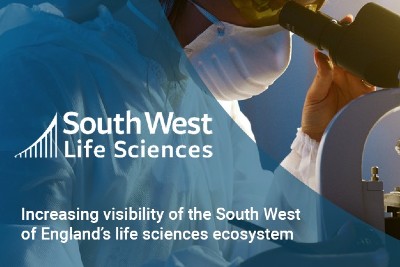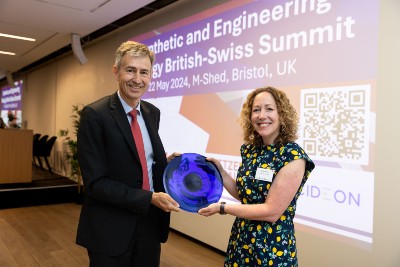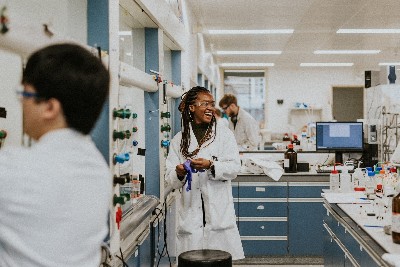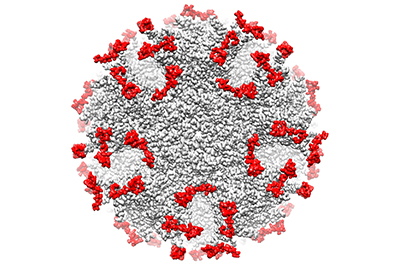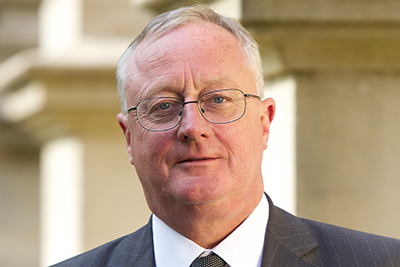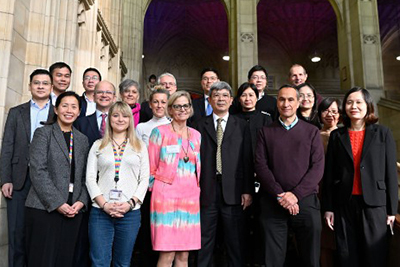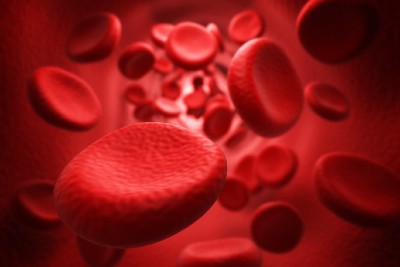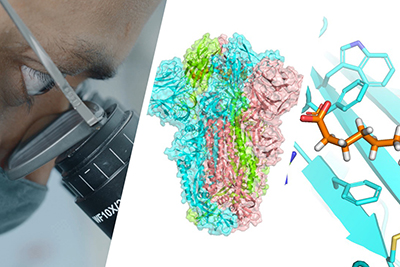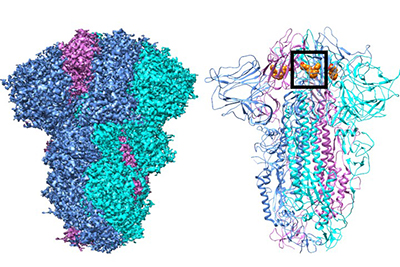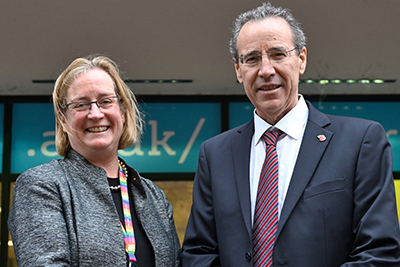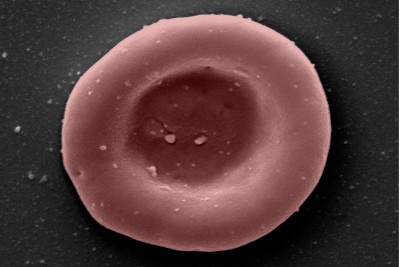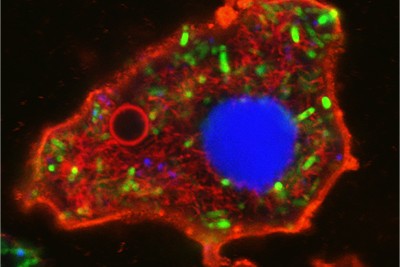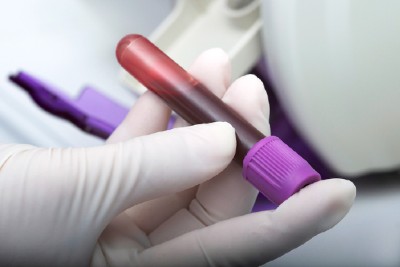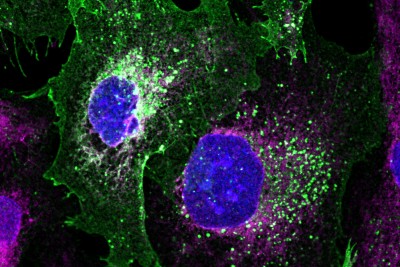Two Bristol scientists elected as Fellows of the Royal Society
Two renowned University of Bristol researchers have been elected to the Fellowship of the Royal Society, the UK’s national academy of sciences.
Two renowned University of Bristol researchers have been elected to the Fellowship of the Royal Society, the UK’s national academy of sciences.
A new initiative to increase the visibility of the South West’s growing life sciences ecosystem has been launched.
The University of Bristol’s BioDesign Institute hosted the Synthetic & Engineering Biology British-Swiss Summit on 22 May 2024. The inaugural event was devoted to understanding the opportunities presented by engineering biology technologies to drive innovation in healthcare, forging collaborations between Switzerland and the UK with a focus on environmental sustainability.
Hundreds of talented scientists and engineers are set to advance solutions for some of the world’s most pressing challenges, ranging from reaching net-zero and developing sustainable energy to improving digital security and making the latest health breakthroughs.
New research has demonstrated the potential for the ADDomer ™ platform to produce thermostable vaccines and reagents to tackle viral infections The study led by the University of Bristol and Imophoron, a biopharmaceutical company developing thermostable nanoparticle vaccines using its ADDomer platform, is published in Antibody Therapeutics today [29 November].
Professor Sir Eric Thomas FMedSci, former Vice-Chancellor and President of the University of Bristol, sadly passed away on Friday 10 November 2023 aged 70 following a short battle with cancer. He was Bristol's 12th Vice-Chancellor, and led the University for 14 years between 2001 and 2015 during a period of significant change in higher education.
Bringing artificial intelligence (AI) and biosciences together to tackle major societal challenges is the aim of a new five-year £1.6m project involving the University of Bristol and several other UK universities.
A new collaborative initiative between UK universities and countries worldwide to share cutting-edge vaccine technology to prevent future global outbreaks of infectious diseases has been awarded £10.5 million from the Department of Health & Social Care (DHSC) and the Engineering and Physical Sciences Research Council (EPSRC).
A new technology to check wind turbines has helped the University of Bristol turn in excellent green credentials for a national assessment.
Researchers have created a unique microscopic toolkit of ‘green’ tuneable electrical components, paving the way for a new generation of bioelectronic devices and sensors.
New technology to develop red blood cells that carry additional proteins within them to provide therapeutic benefit which can reach all parts of the body, has received funding to progress the innovation.
Clinical trials of an easy-to-use home therapeutic treatment for SARS-CoV-2 (coronaviruses) are underway following a £1.5 million investment into University of Bristol spin-out, Halo Therapeutics.
Scientists have discovered why some coronaviruses are more likely to cause severe disease, which has remained a mystery, until now. Researchers of the University of Bristol-led study, published in Science Advances today [23 November], say their findings could lead to the development of a pan-coronavirus treatment to defeat all coronaviruses—from the 2002 SARS-CoV outbreak to Omicron, the current variant of SARS-CoV-2, as well as dangerous variants that may emerge in future.
The German Ambassador to the UK, His Excellency Miguel Berger visited the University on Friday [11 November], to meet Professor Evelyn Welch, the University's Vice-Chancellor and President, to discuss opportunities for UK-Germany education and research collaboration.
Red blood cells that have been grown in a laboratory have now been transfused into another person in a world first clinical trial led by a UK team including University of Bristol researchers.
Anike Te, Chief Strategy Officer for International Materials company Lucideon, will join the University of Bristol as an Aegis Professor in Engineering Biology this month. This prestigious appointment strongly aligns with Bristol’s identity as a world-leading institution for research and innovation with global impact.
Scientists have harnessed the potential of bacteria to help build advanced synthetic cells which mimic real life functionality.
The University of Bristol is part of a new £6.75 million national network to accelerate UK innovation. The Innovation Launchpad Network+ brings together leading universities, the Catapult Network and regional innovation ecosystems to enrich the exchange of ideas and knowledge across these organisations.
University of Bristol research could lead to better detection of the most common type of malignant brain cancer.
Genetic mutations which cause a debilitating hereditary kidney disease affecting children and young adults have been fixed in patient-derived kidney cells using a potentially game-changing DNA repair-kit. The advance, developed by University of Bristol scientists, is published in Nucleic Acids Research.

